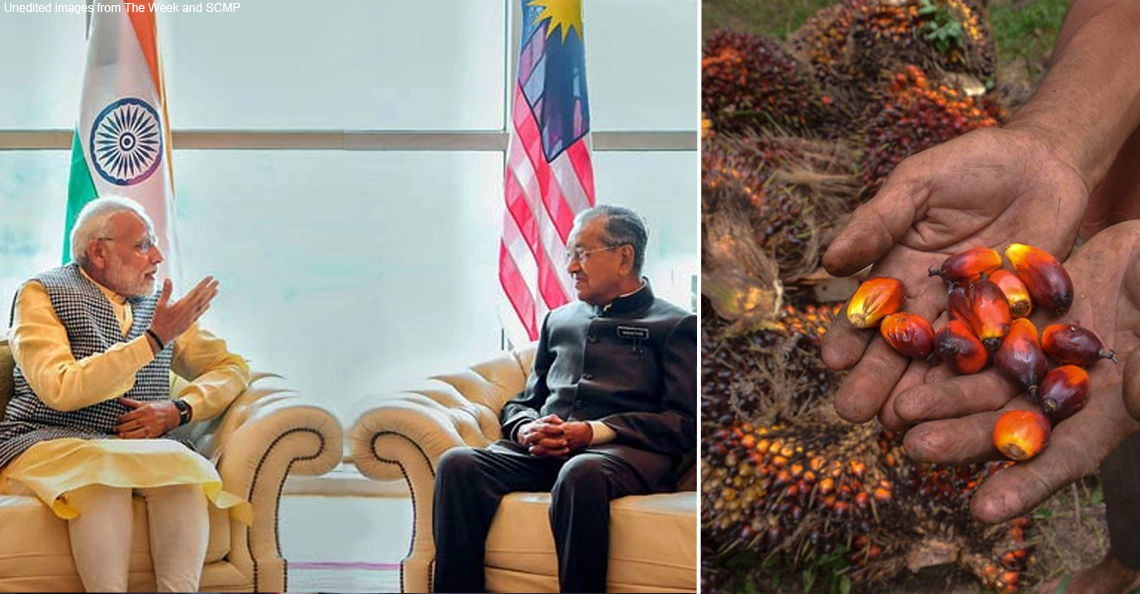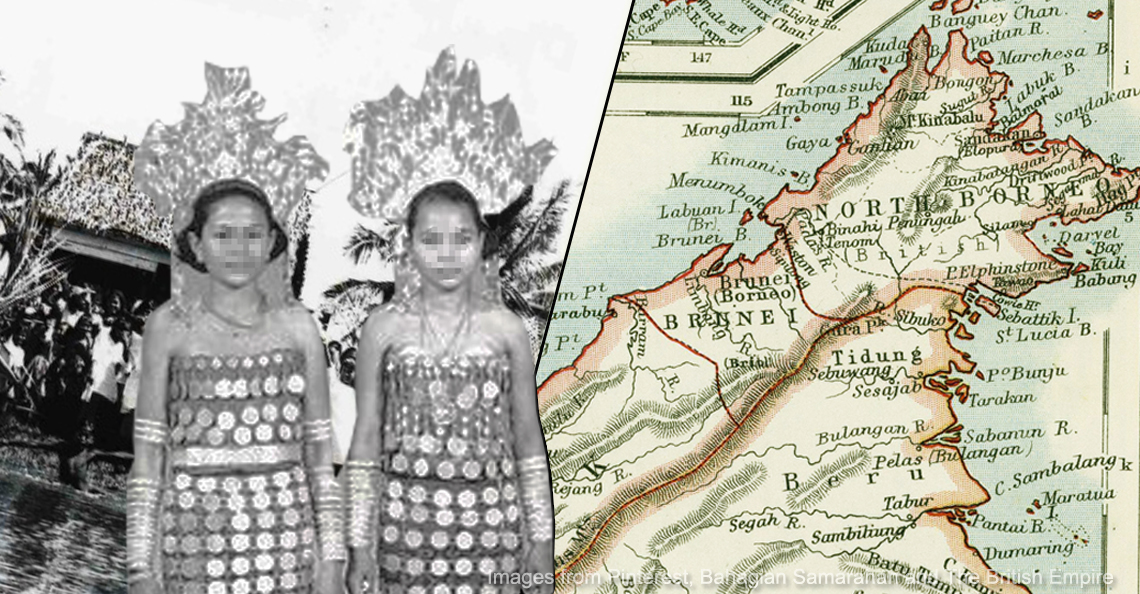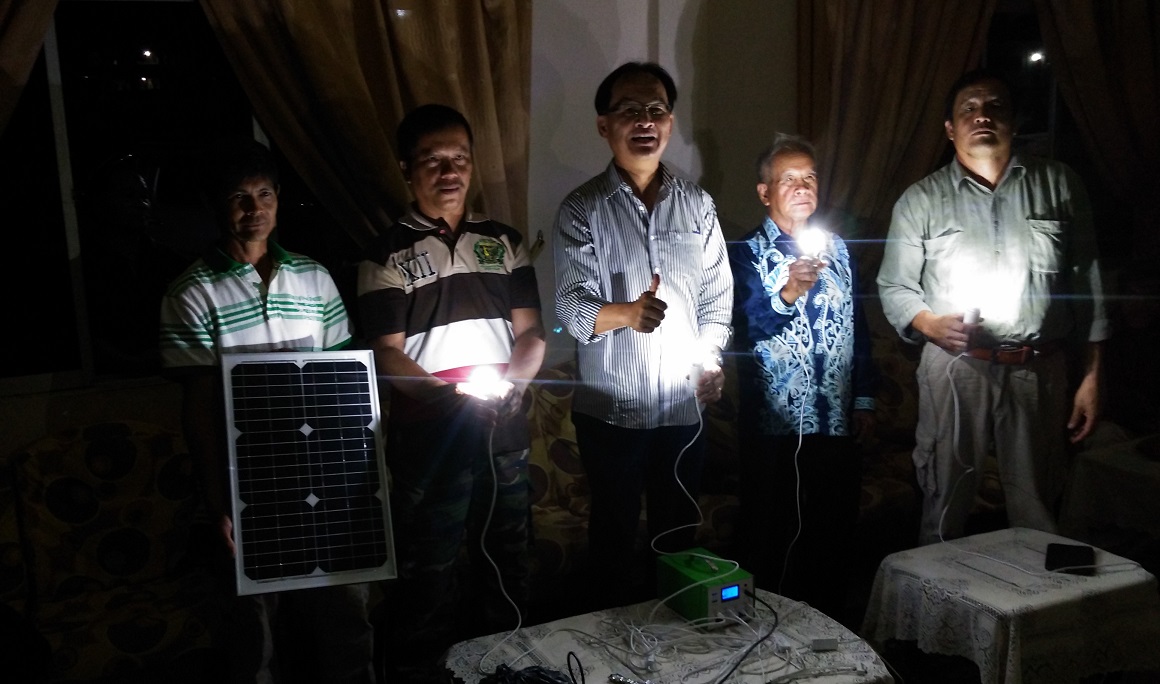Whoah. Did Malaysian palm oil estates create this weird creature?!
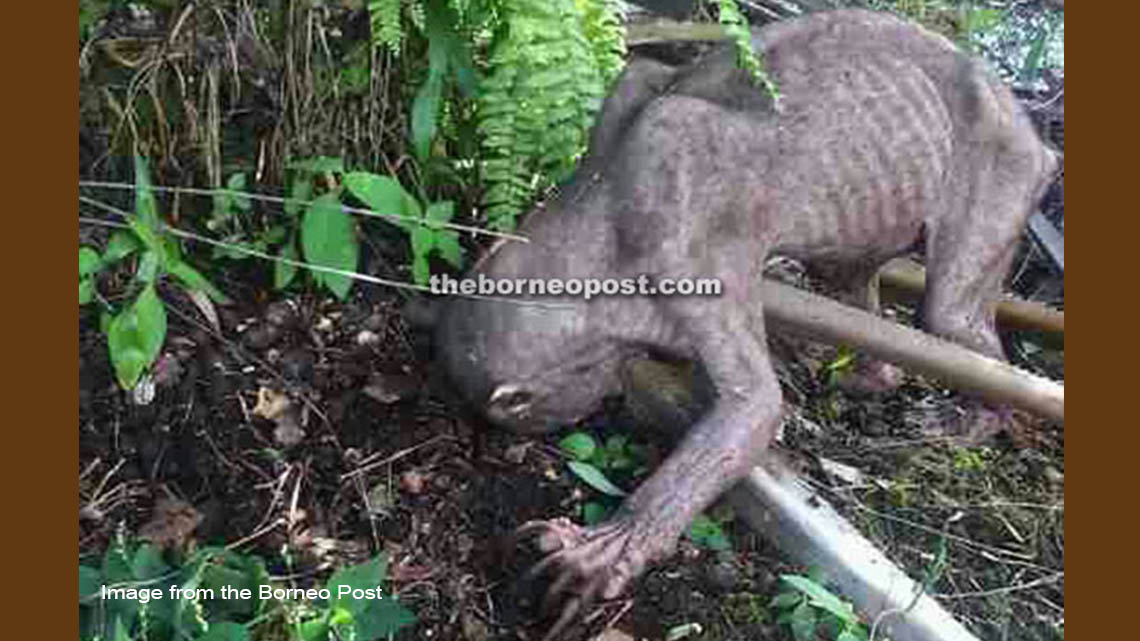
- 1.6KShares
- Facebook1.5K
- LinkedIn2
- Email6
- WhatsApp15
Over the weekend, the Borneo Post reported that plantation workers in Sibu, Sarawak encountered some sort of “alien” while going through their rounds in the morning. It was beaten unconscious when it “charged at them,” according to the workers, and they recorded a video of it escaping after it had woken up.
Here’s a much clearer photograph published by the Borneo Post:
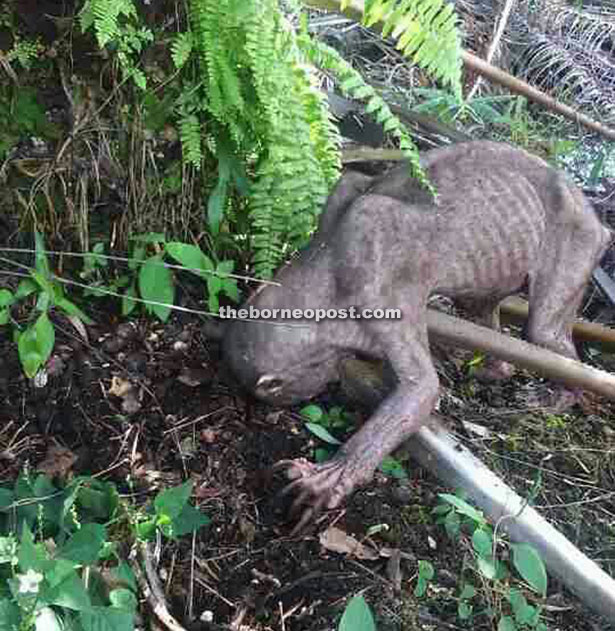
While you might think this is some sort of hoax, we can assure you it’s not.
It’s REAL?! Shouldn’t we be calling the X-Files??!
Whoa, cool your horses. We aren’t calling Mulder and Scully for three reasons:
1. The “alien creature” has been identified by various nature organizations as a Malayan Sun Bear.
2. The X-Files is a fictional TV series.
3. CILISOS is a linkbaity website with no integrity whatsoever when it comes to titles.
But why do Malayan Sun Bears look so… weird?
The thing is… they don’t. This is what a Malayan Sun Bear SHOULD look like-
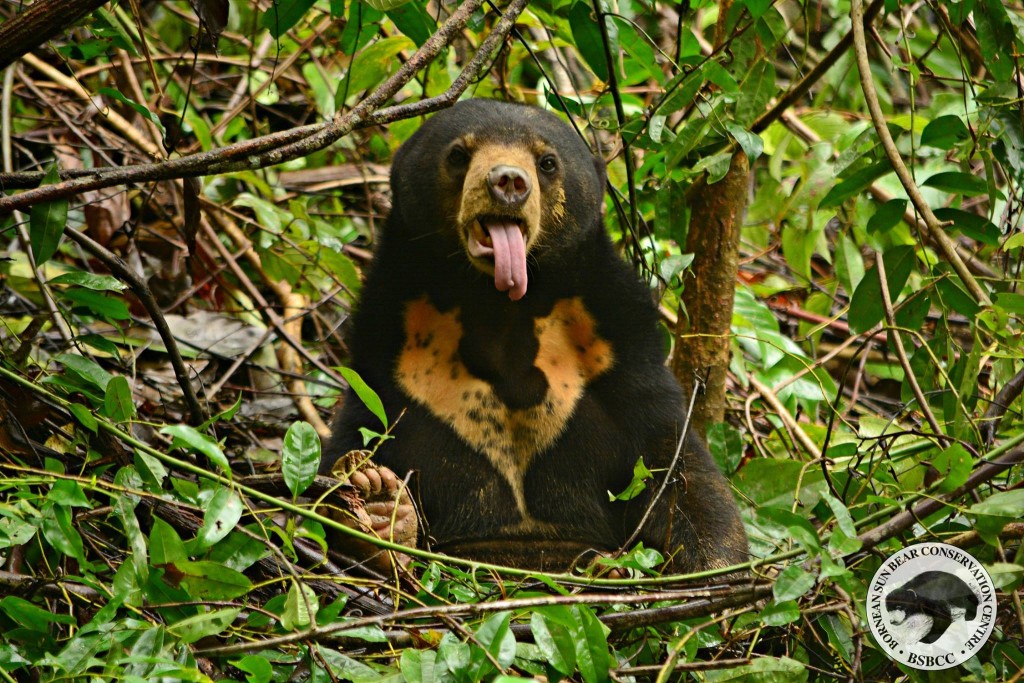
So why did the one in the plantation look like that?
Well, we spoke to Wong Siew Te of the Bornean Sun Bear Conservation Centre who told us that there was something definitely wrong with the bear since those who live close to these plantations usually learn to use it as a source for food, meaning that they are quite healthy and very unlikely to get beaten in a fight with humans. But then again, they would usually avoid humans in the first place, only coming out at night.
For more information on these bears, click this link.
At this moment though, until they catch the bear for further examination, there is no way to tell what the cause is. However, he mentions that there are 3 possibilities, and we say it again, possibilities…
Possibility 1: Slow poisoning from the oil palm estate
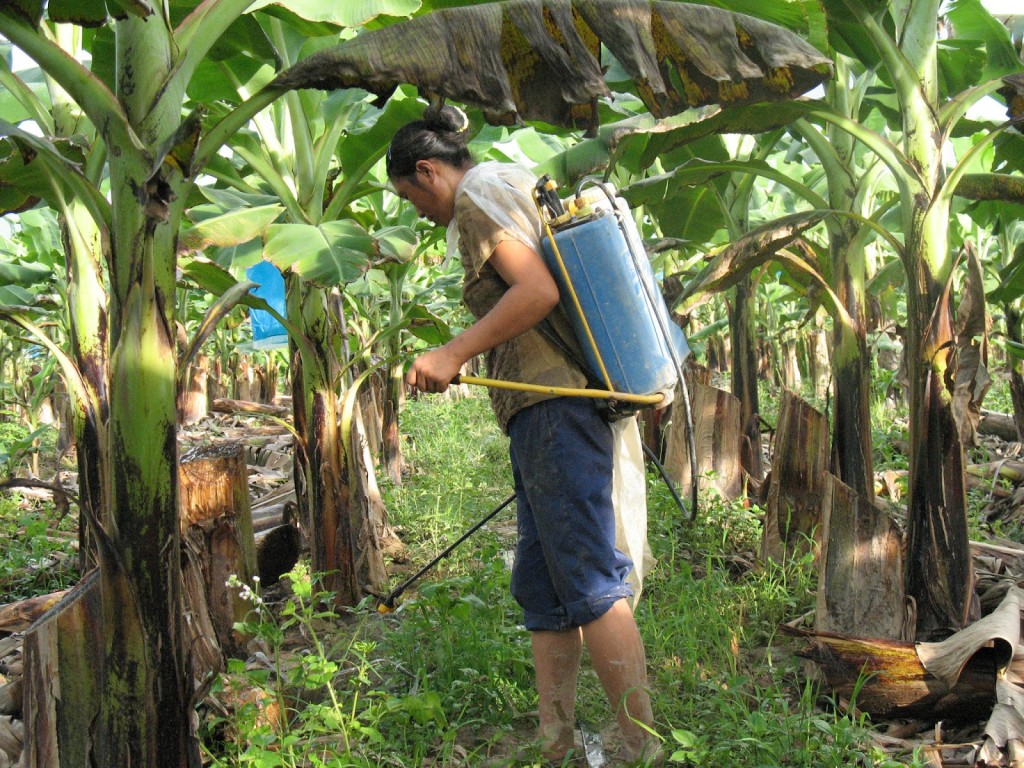
Wong says that IF it was due to poison, the bear in the picture shows chronic symptoms; meaning that it was accumulated over a period of time. There are a few ways this might have happened – the bear could have
- Mistaken rat poison for food
- Eaten insects that have been killed by pesticides, or
- Eaten oil palm seeds that have been sprayed with pesticides.
- Drank water polluted with waste chemicals from the plantations
Although we use the word “pesticides,” we actually mean “pesticides and herbicides” – with pesticides used to remove bugs and herbicides used to remove unwanted weeds. While effective in preserving the crop, these chemicals also inadvertently affect other species further up the food chain that feed on the dead bugs or the fruit it has been sprayed with. A large percentage of the sprayed chemicals also wind up in the water supply, affecting aquatic life and those that drink from these water sources.
Guess where all these chemicals eventually wind up, in terms of water supply and position on the food chain? Yep. Us.
Possibility 2: Some sort of disease
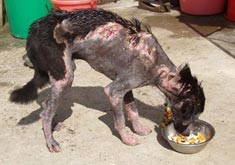
There’s a possibility that the dog may have contracted mange, a parasitic skin disease caused by mites. It’s quite common in dogs and cats, but it does affect other mammals… including humans, though the human version we call scabies to at least make it sound pirate cool (citation needed).
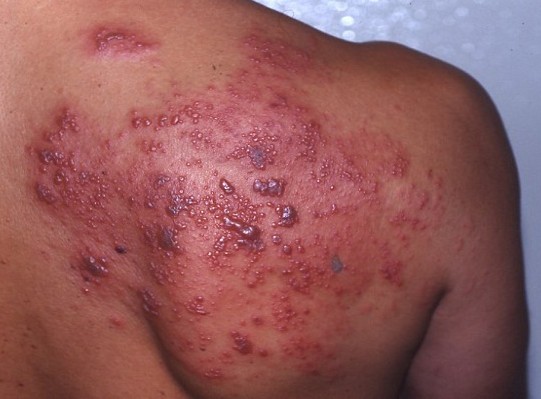
Although it IS possible for for the bear to have picked up the mange from a dog, Wong says it’s quite unlikely because the bear would first have to get close to an infected dog, and dog and bears get along as well as country music and Zouk (meaning that a bear won’t go anywhere near a dog la).
Possibility 3: UNKNOWN
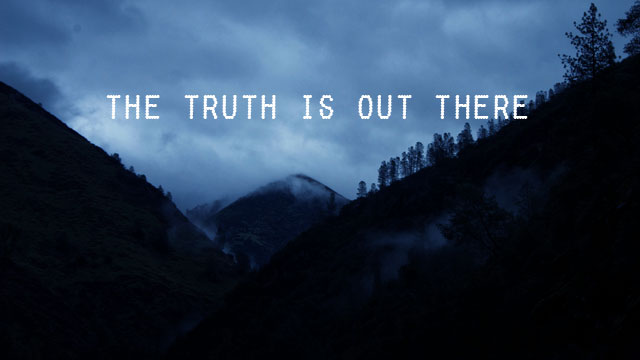
At the time of writing, this is the most likely cause for the bear’s condition since it escaped back into the wild. We won’t know the exact cause without an extensive examination of the bear, which is why the Sarawak Forestry Department has sent a team to look into it. We’ll be following up with the department on this soon.
Wong also mentions that this should be a cause of concern because an unknown disease might spread to other animals or, even worse, people.
Why this “alien bear” issue is so serious
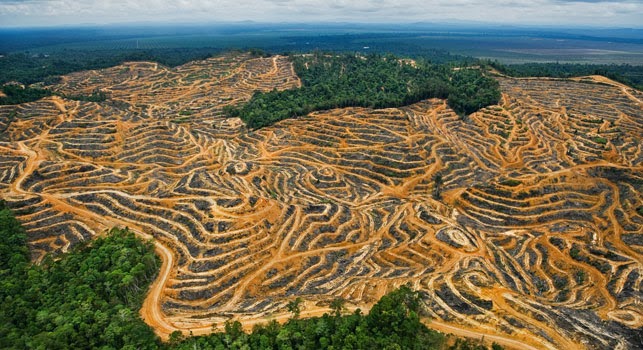
While we’re not trying to downplay the plight of the bear in the video, we feel that it points to the more serious issue of the environmental impact of Malaysia’s palm oil industry. The palm oil industry is the fourth largest in Malaysia, contributing 39.65 billion in revenue to our economy, with plans for further expansion under the 11th Malaysia Plan. We’re basically rehashing many points from our article on deforestation which you should read for more in-depth information.
Basically, we have lost a whole lot of our natural rainforest to palm oil cultivation, with the Zoological Society of London telling us:
“Over 50% of oil palm expansion between 1990 and 2005 in Malaysia and Indonesia directly replaced forests, and studies clearly indicate that oil palm expansion is a major driver of tropical deforestation leading to substantial losses of primary and selectively logged forests and peatlands.” – The Zoological Society of London to CILISOS via email
This leads to a loss of habitat, not just for the Malayan Sun Bear (which is endangered by the way) but also to other animals such as the orangutan, Asian elephant, tiger, and Sumatran rhinoceros.
This deforestation also puts these animals in contact with animals (and people) they would normally have no contact with, leading to the spread of uncommon diseases either through direct contact or through vectors such as ticks and mosquitoes. It’s not just in the bears too… there has been a case of a man in Sarawak infected by a strain of Dengue previously only found in monkeys.
And when you add that to the issue of environmental contamination of pesticides, herbicides, and fertilizers used, you’ve got a pretty large threat to our MALAYSIAN wildlife, something you might want to think about next time you’re taking selfies with paper pandas.

CILISOS Note: We’re not shaming anyone from taking those panda selfies… we’re just saying that equal attention should be paid to Malaysian wildlife, and that the 1600 Pandas display is a global campaign meant to raise awareness for wildlife conservation efforts.
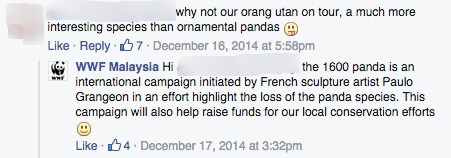
UPDATE: The sickened bear has apparently been found, although some are questioning whether it’s the same bear, or indications that other bears might be sick as well.
So what can we do about this?
Well, let’s be honest… we can’t stop the palm oil industry due to the industry’s economic contributions to the country. However, what we CAN do is to push for sustainable development.
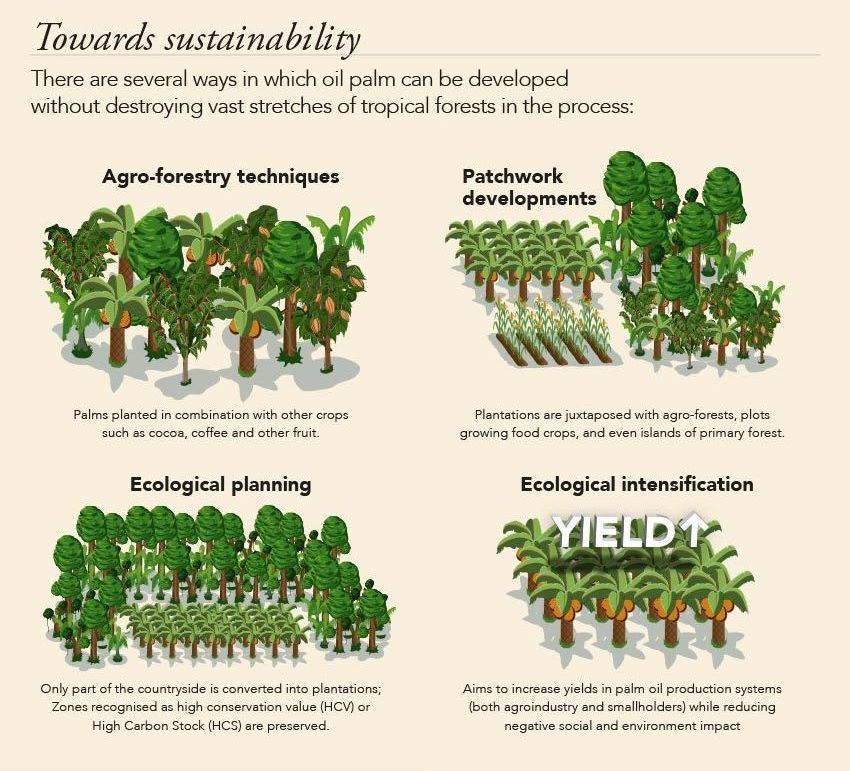
We can do this by:
1. Pushing for palm oil companies to join the Roundtable on Sustainable Palm Oil, a global watchdog to make sure companies stick to international standards and transparency. Here’s the list of current members.
2. Keeping an eye on our local palm oil companies are doing in terms of sustainability using SPOTT – the Sustainable Palm Oil Transparency Toolkit. It scores 25 of the world’s biggest companies (like Sime Darby Plantation, IOI Corp, Kulim Bhd) based on how transparent they are and how well they manage sustainability.
3. And if you’re more concerned about the Sun Bears, you can click on the cute bear to find out how you can help or email Wong at [email protected]. It’s not just cash, it can just be spreading the word to raise awareness for them 🙂
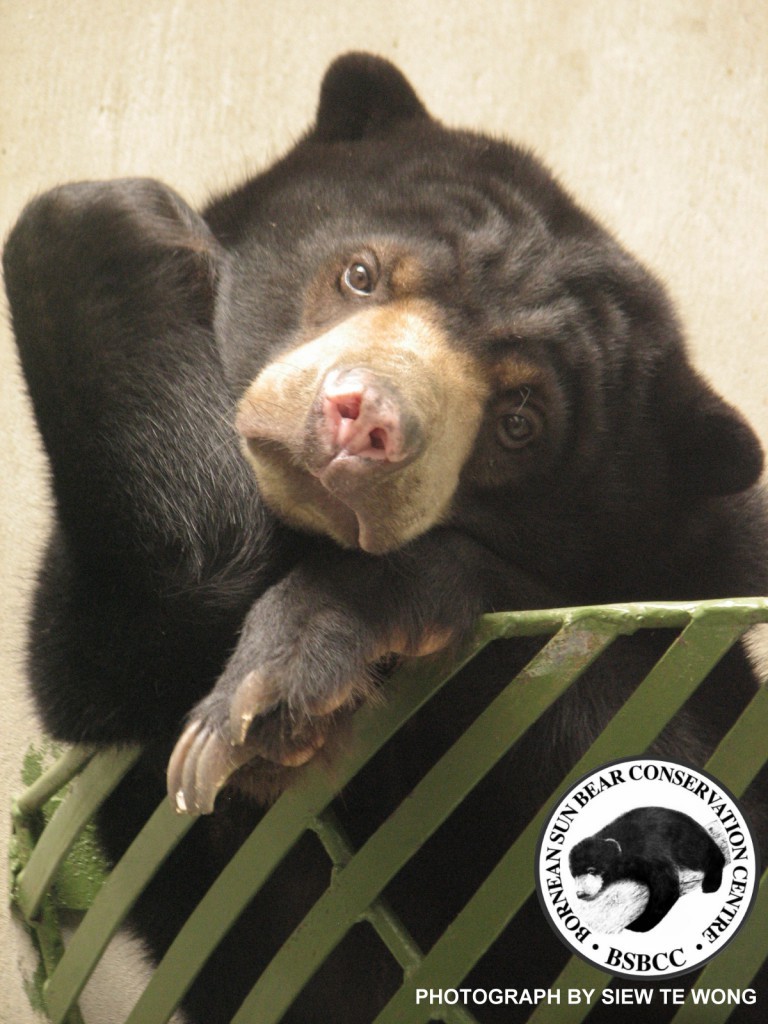
- 1.6KShares
- Facebook1.5K
- LinkedIn2
- Email6
- WhatsApp15

